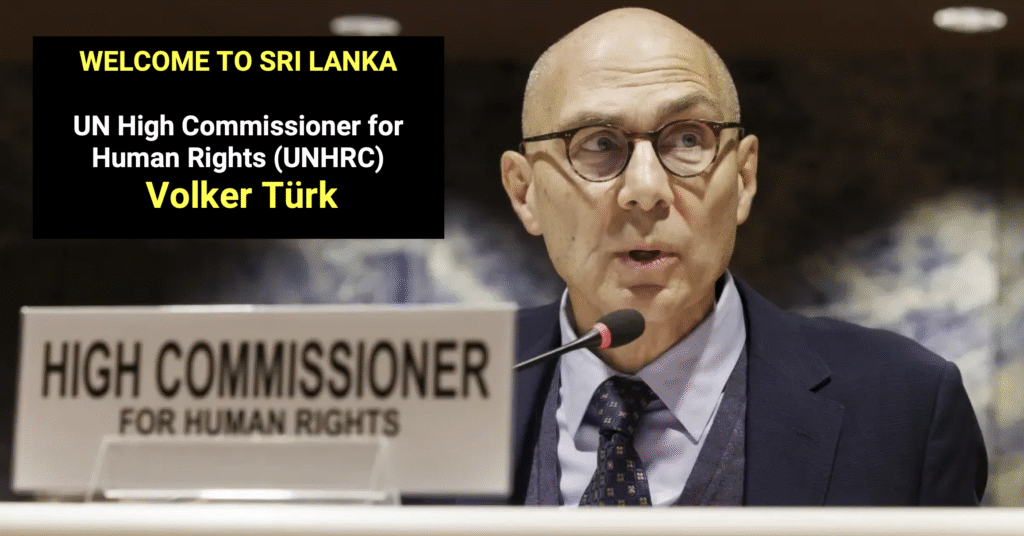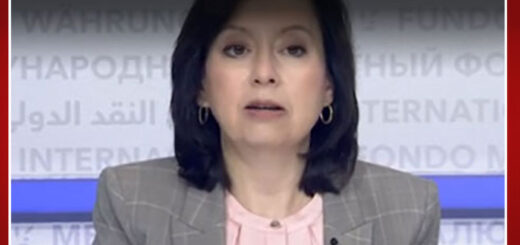Questions to the incoming UNHRC Head – On Behalf of Concerned Citizens of Sri Lanka

Sri Lanka stands today as the ONLY nation that defeated one of the world’s most ruthless terrorist organizations—the LTTE—without international military assistance. In doing so, it upheld its sovereign duty to protect all citizens, irrespective of ethnicity or religion, and ushered in a lasting peace after 30 years of carnage. Yet, paradoxically, since that historic moment in May 2009, Sri Lanka has faced relentless international censure—driven not by legal objectivity, but by politically influenced narratives, double standards, and unverified claims. This set of questions is respectfully directed to the incoming High Commissioner for Human Rights and the Office of the UNHRC, in the spirit of transparency, fairness, and mutual accountability. These questions demand clarity on legal authority, procedural fairness, factual accuracy, and the continued erosion of Sri Lanka’s sovereignty through repeated country-specific resolutions, all while far graver human rights abuses in other global theatres are left untouched. It is time to ask: Has the UN system become a tool for political pressure, or does it still stand for the impartial protection of human rights and the sovereign equality of nations as enshrined in the UN Charter?
I. Violation of UN Charter & Sovereignty
- Under which provision of the UN Charter was the UNSG authorized to appoint a Panel of Experts (PoE) on Sri Lanka in June 2010 without the consent of the General Assembly or Security Council?
- Why was the PoE report leaked to the media instead of being officially tabled before the UNSC, UNGA, or OHCHR? Why was Sri Lanka denied the right to officially respond?
- Why did the UN fail to consult the democratically elected Government of Sri Lanka before initiating external accountability mechanisms?
- How does the UN justify selective scrutiny of Sri Lanka when it has not pursued similar inquiries in Iraq, Afghanistan, Libya, Yemen, or Palestine?
- Why has the UN never acknowledged that this is the only instance where post-war punitive action has been taken against a government that defeated a UN-designated terrorist group?
- Why has the UNHRC never publicly affirmed Sri Lanka’s right to defend its sovereignty against terrorism, particularly from the LTTE, which employed suicide bombings, assassinations, child soldiers, and mass civilian massacres?
II. Illegitimacy of the UNSG’s Panel of Experts (Darusman Report)
- Why was the Darusman Panel appointed in secret, with no Sri Lankan representation, and without UN General Assembly or UNSC mandate?
- Is the UNHRC aware that the Darusman Report clearly statesit is not an investigation but merely an “advisory report” to the UNSG?
- Why did the UNHRC base multiple resolutions and OHCHR reportson an advisory note (Darusman Report) which lacks legal standing and admissibility in courts?
- What ethical standardswere followed in releasing the Darusman Report selectively to the public and media, before giving Sri Lanka a chance to respond?
III. Bias & One-Sidedness in UNHRC Resolutions
- Why have all UNHRC resolutions singled out Sri Lanka’s armed forces and government, while ignoring the LTTE’s 30 years of mass murder, bombings, child conscription, and use of human shields & hostages?
- Why did the OHCHR reports and resolutions omit or downplay the countless war crimes and crimes against humanity committed by the LTTE, including the killing of Tamil civilians who refused to join them?
- Why has the UNHRC never conducted or demanded an investigation into international complicity in arming, funding, or politically supporting the LTTE?
IV. Post-War Manipulation, Legal Overreach & Lack of Closure
- Why is the UNHRC pressuring Sri Lanka to adopt hybrid courts, transitional justice mechanisms, and foreign interventions while dismissing the success of post-war domestic processes, such as the LLRC, rehabilitation of 12,000 ex-combatants, and reintegration of 594 former child soldiers?
- What is the legal basis for proposing hybrid courts and inclusion of foreign judges when Sri Lanka is not a party to any treaty or agreement that compels such interference in its judicial sovereignty?
- Why has there been no recognition by the UN or OHCHR of Sri Lanka’s voluntary and unprecedented efforts at post-conflict reconciliation, including the reintegration of former LTTE fighters, demining, and infrastructure rebuilding in war-torn areas?
- How does the UNHRC justify persistent country-specific targeting in breach of its own principle of impartiality and equal treatment of all member states?
- What is the UNHRC’s legal mandate to apply international human rights law (IHRL) selectively to a non-international armed conflict when the correct legal framework under international law is International Humanitarian Law (IHL)?In armed conflicts, IHL—not HRL—is the governing legal regime. On what basis does the OHCHR elevate human rights law over IHL, particularly when assessing the final stages of the Sri Lankan conflict?
- Can the UNHRC clarify why it continues to ignore that during armed conflict, actions are governed by the Geneva Conventions and related customary humanitarian law—not by the framework of civil peacetime human rights law?
V. Inconsistencies, Secrecy & Data Manipulation
- Why did the Office of the High Commissioner for Human Rights (OHCHR) continue to quote the unverified figure of40,000 civilian deaths in Sri Lanka’s final war phase, despite lacking independently verified names, forensic evidence, or transparent methodology?
- Why has the UNHRC and OHCHR ignoredSri Lanka’s official census data (7,400 deaths) and UN Country Team estimates (7,721 deaths)—both based on ground-level assessments—yet the PoE stated this figure was “too small to accept”?
- On what grounds has the United Nations refused to release its owninternal wartime communications, situation reports, and casualty logs that would provide an accurate and impartial death toll—especially when those internal records reportedly do not support the inflated death figures circulated by media outlets and repeated in UN resolutions?
- Why has the UN system, including OHCHR, failed toaudit and disclose the data sources, field methodologies, and statistical models behind these influential but disputed figures, even when requested by member states?
- Is it not a violation ofbasic standards of evidence and fairness for the UN to have permitted unverified claims of mass civilian deaths to be used as the basis for repeated resolutions against Sri Lanka, while denying Sri Lanka the right to challenge the figures or present its own verified data?
VI. Accountability & Transparency in UN Process
- Will the UNHRC declassify all communications related to Sri Lanka’s war from 2006 to 2009, including those of the UN Resident Coordinator’s office, NGOs, and affiliated agencies?
- What mechanisms does the UNHRC have in place to prevent conflict of interest, where NGOs writing reports also fund or influence UNHRC resolutions?
- What steps will the UNHRC take to ensure that Sri Lanka is not coerced into accepting foreign models of justice that violate its Constitution?
VII. Historical Context & Double Standards
- Why is the UN silent about the LTTE’s assassinations of Tamil leaders, including Lakshman Kadirgamar, Neelan Thiruchelvam, and hundreds of Tamil civil society leaders?
- Will the UNHRC acknowledge that Sri Lanka’s conflict was not ethnicbut caused by separatist terrorism, and apologize for misrepresenting it as Sinhala-Buddhist oppression?
- Why does the UN refuse to engage in truth-telling about the foreign governments and NGOs that supported the LTTE directly or indirectly during the war?
VIII. Final Questions of Good Faith
- Does the UNHRC believe that Sri Lanka, having ended a ruthless terrorist insurgencyand resettled over 300,000 civilians, deserves recognition rather than condemnation?
- Will the new UNHRC leadership commit to impartiality, abandon politicized pressure, and finally allow Sri Lanka to heal without foreign interference?
- Will the HRC agree to review and audit the legality of all resolutions passed on Sri Lanka since 2012 and their alignment with the UN Charter?
IX. Defamation of War Heroes & absurdity of Genocide claims
- Why is the UNHRC silent while decorated Sri Lankan war heroes—who courageously led operations to end terrorism—are falsely accused of war crimes and genocide, and even subjected to foreign sanctions, despite no credible legal proceedings or evidence?
- How does the UN justify branding individuals as war criminals when the very army commander who led the military campaign is not among the accused, exposing the arbitrary and politically motivated nature of these allegations?
- Can the UNHRC explain how saving 300,000 Tamil civilians through the largest hostage rescue operation in modern military history can be reconciled with the accusation of deliberately killing 40,000 civilians? Isn’t such a contradiction absurd and defamatory?
- Why have foreign governments that actively supported, funded, or harbored LTTE operatives—despite LTTE’s proscription under UNSC Resolution 1373—never been investigated or held accountable?
- Why is there no scrutiny of the LTTE-linked diaspora entities still operating in foreign capitals, openly glorifying terrorism and distorting the narrative with fabricated death tolls?
- How does the UNHRC justify the repeated citation of the 40,000 civilian death claim when there are no verified bodies, no police complaints, no forensic evidence, and even the UN’s own country team and Sri Lanka’s census data contradict this number?
- Is it not time for the UN to call out the propaganda, reject data manipulation, and end this politically driven witch-hunt? The truth must prevail, and false genocide labels must not be allowed to taint a nation that defeated terrorism and safeguarded human lives.
What the JVP–NPP Government & President Anura Kumara Dissanayake must demand from the visiting UNHRC Head:
- Declassificationof all UNHRC/OHCHR internal reports and wartime communications related to Sri Lanka.
- Reciprocity & equalityin how human rights violations are assessed—especially when Western powers evade similar scrutiny.
- A full reviewof all UNHRC resolutions passed against Sri Lanka, including their legal basis and procedural fairness.
These questions and expectations represent the sentiments of a nation that has endured terrorism, protected its sovereignty, and pursued peace—despite external pressures and distortions. The time has come for transparency, fairness, and closure.
Let Sri Lanka remind the incoming High Commissioner for Human Rights that this nation endured three decades of brutal terrorism. If the effort, urgency, and scrutiny that the UN and UNHRC have exerted since the defeat of the LTTE had been applied during the LTTE’s reign of terror, countless innocent lives could have been saved. Instead, the current UN approach appears more focused on questioning how the terrorists were eliminated than on appreciating the peace that now prevails. It is time to acknowledge the undeniable reality:
Sri Lanka is living without terror today—not because of international intervention, but in spite of it.
Shenali D Waduge







